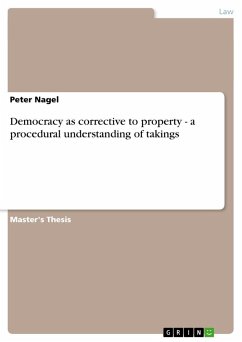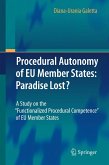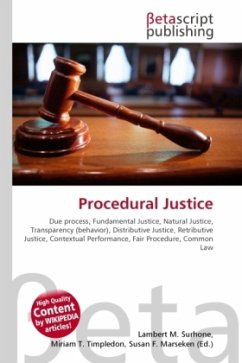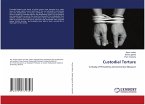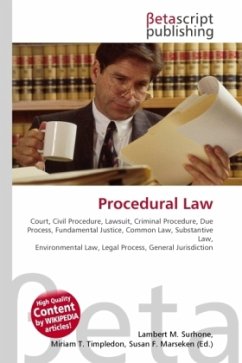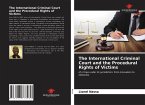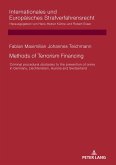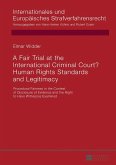Master's Thesis from the year 1999 in the subject Law - Philosophy, History and Sociology of Law, grade: A-, UNIVERSITY OF MICHIGAN LAW SCHOOL, language: English, abstract: The procedural understanding of constitutional provisions hasundergone a remarkable development over the last decades. Beginning with a footnote by Justice Stone in Carolene Products, procedure was found to be the appropriate basis for judicial review and made its way into public choice theory. One of the more recent contributions is Professor Habermas's discourse theory as philosophical response to the emergence of pluralist "lifeworlds" within modern Occidental communities. Whereas the academic awareness of procedural issues seems to have progressed from quite specific legal questions to general philosophical problems, I would like to address them from the reverse perspective. What does philosophy have to say about constitutional interpretation? More specifically, what are the implications of Habermas's "discourse theory" for the understanding of takings? To answer these issues, Part I presents discourse theory as an alternative legal concept to natural law and legal positivism as applied by the American and German constitutional courts in the context of takings. In Part II, I shall claim that the discoursive approach can help to promote a procedural understanding of the Just Compensation Clause. Part III, finally, uses the philosophical background ofdiscourse theory to test procedural recommendations of public choice theory.
Bitte wählen Sie Ihr Anliegen aus.
Rechnungen
Retourenschein anfordern
Bestellstatus
Storno

